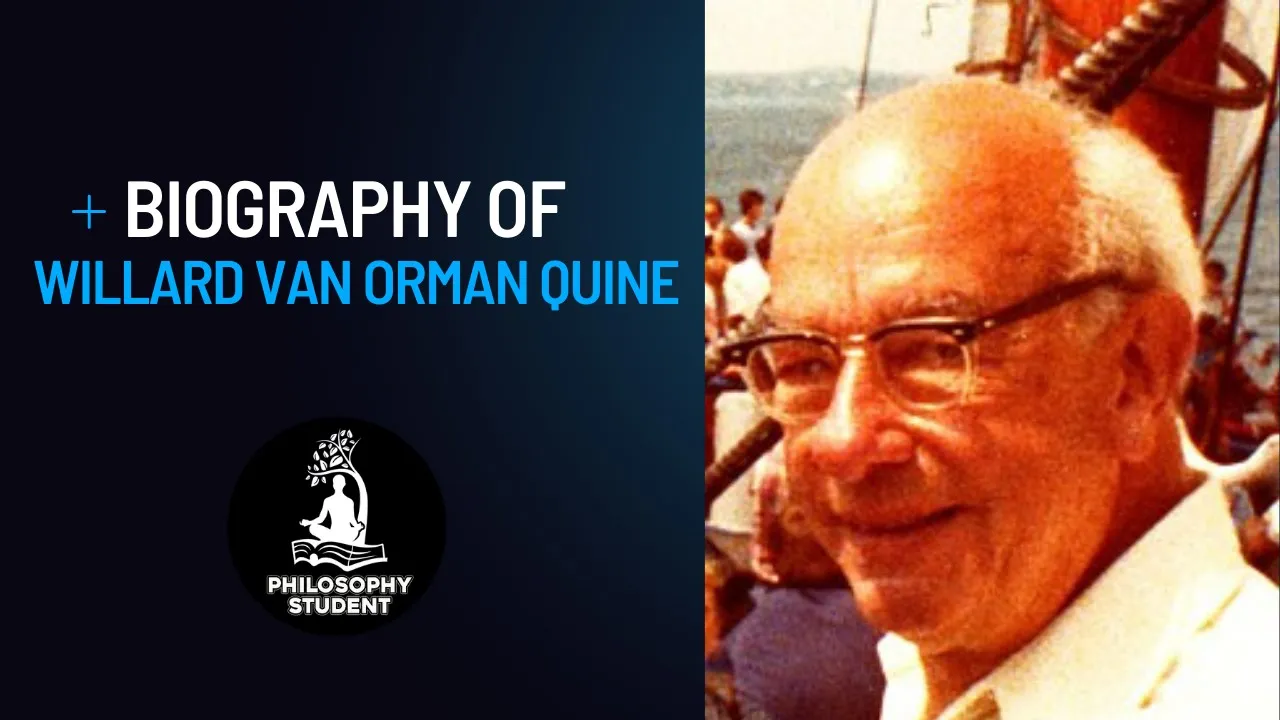Considered among the most influential of twentieth-century philosophers, Willard Van Orman Quine was a logician and analytic philosopher, who argued against logical empiricism, or logical positivism, the notion that the only factually valid knowledge is scientific. He was born on June 25, 1908, in Akron, Ohio, the son of Cloyd Robert Van Orman, founder of the Akron Equipment Company, which produced tire molds, and Harriett E. Van Orman, a schoolteacher.
Quine earned a B.A. in mathematics from Oberlin College in 1930 and a Ph.D. in philosophy from Harvard University just three years later, in 1932, working under Alfred North Whitehead. A fellowship permitted him to travel to Europe during 1932-1933, where he met leading Polish logicians and some of the Vienna Circle, including Rudolf Carnap.
During World War II, Quine lectured in Brazil (in Portuguese) on logic and served in the United States Navy as an intelligence officer decrypting messages intercepted from German submarines. Quine’s academic career was spent at Harvard University, and from 1956 until 1978, he held the Edgar Pierce Chair of Philosophy there. As a professor, he taught logic and set theory, arguing that first-order logic was the only kind worthy of being called logic. He developed New Foundations, his own system of mathematics and set theory and, with Hilary Putnam, developed the “Quine–Putnam indispensability thesis,” which argued for the reality of mathematical entities. Nevertheless, he also argued that philosophy is not conceptual analysis but, continuous with science, the abstract branch of the empirical sciences. His work in epistemology was aimed at showing how humankind had developed scientific theories based on little sensory data. At the same time, he championed ontological relativity in science, the so-called Duhem–Quine thesis.
He is best known for his papers “On What There Is,” which presented Quine’s dictum of ontological commitment, “To be is to be the value of a variable,” and “Two Dogmas of Empiricism,” which rejected positivism in favor of semantic holism, the theory that any part of language can be understood only via its relations to larger segments of language as previously understood. In The Web of Belief (written in 1970 with J. S. Ullian), he further extended holism into coherentism, which implies that justification of a belief must be made within the context of a system of beliefs that cohere with one another. Earlier, in Word and Object (1960), he introduced his indeterminacy of translation thesis, in which he distinguished three semantic indeterminacies: inscrutability of reference, holophrastic indeterminacy (indeterminacy of sentence translation), and underdetermination of scientific theory (or confirmation holism—the idea that no theory can be tested except when embedded in a context of other hypotheses).
As a logician, Quine confined logic to first-order logic and thus to truth and falsity under any universe of discourse. He was a champion of the application of the formal logic of philosophy and mathematics, and he maintained that mathematics required set theory, which was distinct from logic.
In the field of contemporary metaphysics, he developed abstract object theory—abstract objects having no physical referents—and he rejected the validity of analytic statements even as he affirmed their essential circularity. Ultimately, he concluded that there is no distinction to be made between universally known collateral information and analytic truths.
Extending metaphysics to epistemology, Quine argued against normative epistemology and advocated replacing it with an empirical study of what sensory inputs produce what theoretical outputs. In effect, then, he extended epistemology into the psychological field of behaviorism, a notion that proved tremendously controversial. Quine died, in Boston, on December 25, 2000, at the age of ninety-two.



































